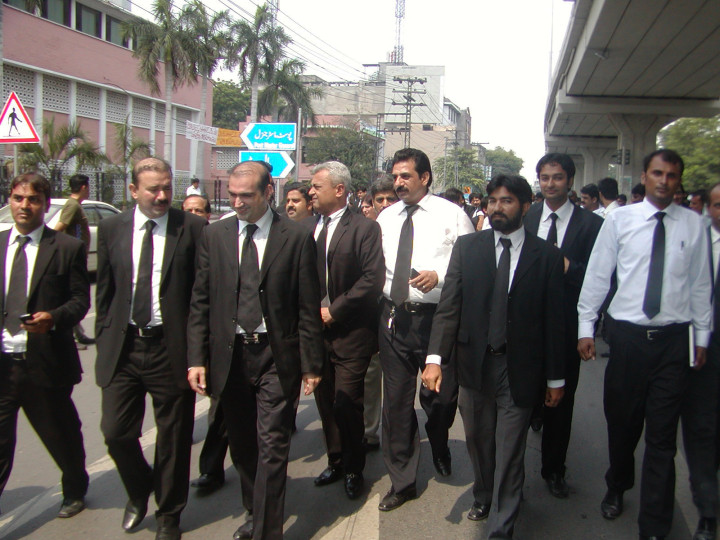Different political forces strike or cooperate with each other in any political system. However, if a political system is strong, it can accommodate, domesticate or maintain equilibrium or balance among these forces to maintain stability in society. If it is weak and unable to impose its authority on small forces, it fails to maintain stability and lawlessness takes root.
By Irshad Ahmad Mughal
Rousseau, Hobbes, Lock and other political scientists try to provide various justifications in favor of governments and states to overcome anarchic situations in which various forces are fighting each other and striking with full force. Thus the ultimate goal of any political system is to protect citizens, their properties, and lives along with other human rights from any striking forces.
But if a political system is not functional and active enough to incorporate inputs and demands of its public, what is the justification of it? Political scientists don’t have answer because there is not any acknowledged alternative political system yet.
When political systems loses grip on society, various small groups, parties, militants and other agencies strike each other like billiard balls. When a player hits one ball with force, it strikes others and strange invisible forces seem to have struck out. Each ball runs in different directions. Sometimes, even champions can’t predict which direction a ball will move.
Newton’s first law states that a body in motion will remain in motion at a constant speed and direction unless an outside unbalancing force acts upon it. Likewise, if the object is at rest and no outside, unbalanced, force acts upon it; it will stay at rest. When citizens or masses are at rest and peaceful, different forces disturb their balance and force them to involve into lawlessness through like invisible forces working in society.
Three days ago, clashes between police and lawyers turned deadly in Daska (a small city of Sialkot, Punjab) when police opened fire at the lawyers, killing two lawyers. This outraged the lawyers who then set out to protest and burnt the Deputy Superintendent of Police’s house down, also the building of the Town Municipal Administration. This incident seriously disturbed the whole system of courts and streets in Pakistan. The frequency of such striking forces are increasing in spite of successful operations of the army against Taliban but should be against politicians, too, so they take responsibility and learn how various forces strike with each other and run in different directions.
This goes to show how the political system is weak and unpredictable. Any force can disturb the stability and equilibrium. Any force can burn state properties. The question arises, why a mob of educated lawyers end up burning state properties? There may be many reasons behind this psyche, but one aspect of it is very concrete based on personal experience.
We (Humanist Movement group) did peace march in 2011 from Gujranwala to Lahore (around 100 KM) on foot in May of that year but not a single media channel provided coverage, in spite of our decent numbers of forty to fifty people. Many colleagues (who are well known agitators) told me, if you burn a few tires and properties, all media channel will give coverage but if you remain cool and peaceful, you will hardly get space on news channels.
Everybody wants their projects seen on media channels some even at the cost of damaging state buildings. But if there are clashes between police and lawyers, the media gets a lot of breaking news to broadcast.
When law implementing agencies and law interpreting or defending agencies fight with each other, several agitators with low profile get space on news channels to up their image. When TV channels broad cast agitators burning properties, and vehicles and portray same as a hero in action movie, many try to repeat the story to become glorified villains as well. Media has to be aware of this negative effect of how their trade is conducted.










